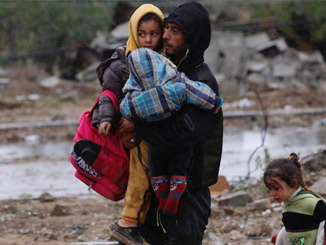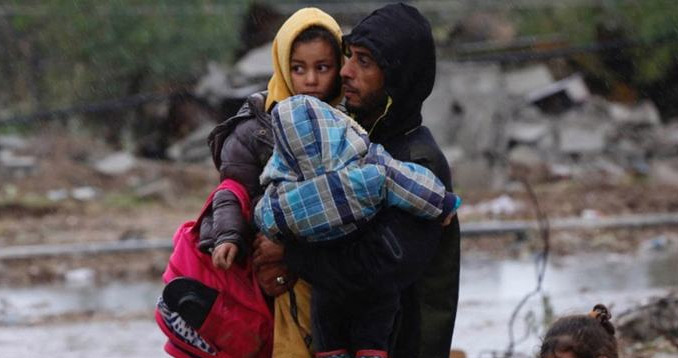

As Secretary-General António Guterres spoke of his deep regret about the resumption of military operations in Gaza on Friday, UN humanitarians vowed to stay and help all those in need, while reiterating “nowhere is safe from attacks” in the war-shattered enclave.
The sound of shells exploding shortly after 7am Gaza time was clearly audible at Nasser hospital in the south, where terrified and traumatised youngsters immediately reacted by clinging to their mothers in fright, said James Elder from the UN Children’s Fund (UNICEF).
“The bombs started just a few seconds after the ceasefire (ended),” Mr. Elder told journalists at UN Geneva via video link from Khan Younis, before decrying the “ongoing war on children”.
Wounds of war
“As we approached Nasser hospital there had been a hit, a missile, a rocket, something…Children with the wounds of war are everywhere, children with the wounds of war are still in corridors. Hundreds of women and children take refuge in here. You walk out of ICU (intensive care unit) and there are families of five on a mattress for two.”
The return to violence follows the end of a week-long pause in hostilities between Hamas militants and Israeli forces that allowed the delivery of desperately needed fuel, food and water, which people have been drinking as soon as it is given to them, humanitarians report.
The pause also enabled the release of hostages taken during Hamas’s 7 October surprise attack on southern Israel and ensuing massacre of some 1,200 people, and the freeing of Palestinian prisoners held in Israel.
Gaza’s health authorities have reported more than 15,000 fatalities since the Israeli strikes began, with thousands of children believed buried under the rubble. The conflict has also created around 1,000 child amputees in recent weeks, Mr. Elder noted.
In an interview later in the day with UN News, Mr. Elder demonstrated the reality that nowhere is safe in Gaza, describing scenes of bombardment close by from his base in the southern city of Rafah.
He called on leaders involved in the conflict and with influence over the situation to understand that “enabling these attacks to begin again is to allow the killing of more and more children.”
